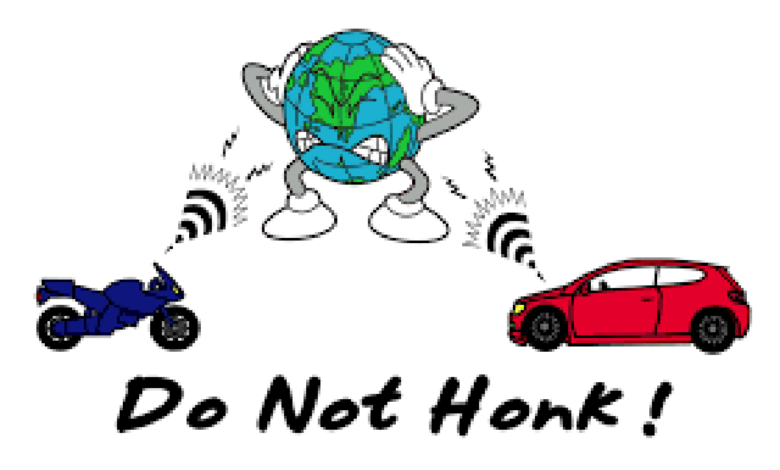Unnecessary honking becoming growing nuisance in Doon, difficult to regulate

Thursday, 19 September 2024 | PURNIMA BISHT | DEHRADUN
Dehradun is grappling with a surge in noise pollution caused by unnecessary honking on its roads. Despite traffic laws discouraging such behaviour, individuals continue to honk excessively, often getting away with it due to gaps in law enforcement. There are few stringent legal measures to regulate or penalise unnecessary honking, making it difficult for authorities to take action against those who perpetuate this nuisance. While modifications like pressure horns are banned and penalised, regular loud honking often goes unchecked.
According to the regional transport officer (RTO) of Dehradun, Sunil Sharma, the challenge lies in the lack of solid evidence to hold offenders accountable. “Though authorities impose penalties or take action against pressure horns, which are usually installed through vehicle modification, there is no prominent way of taking action against loud honking. If we approach the person responsible, they can easily deny it. Without clear evidence, it is hard to prove that the person was honking unnecessarily,” he added. This loophole allows many people to continue honking indiscriminately without facing consequences. While modifying vehicles with pressure horns is easier to regulate, regular honking falls into a grey area. “In most cases, it is difficult to prove the offence when it comes to simple honking. For such situations to stop occurring, people need to develop a civic sense and a kind attitude,” the RTO said.
Whether on narrow lanes, highways or even at traffic signals, the sound of blaring horns is an ever-present reality in the city. Some people even honk while speeding through roads, expecting others to make way for them, adding to the chaos and increasing the risk of accidents. A daily commuter, Akshay Rawat, shared his frustration, “Every day on Rajpur Road, I encounter unnecessary honking. Even at red lights, people seem to think honking will make the signal change faster. It is not just irritating, it is exhausting.”
A Dharampur resident Shobhit Verma said, “Honking seems like a deeply ingrained habit for many drivers in Dehradun. The lack of proper law enforcement makes it challenging to address this issue comprehensively. Even in hospitals located near main roads, you can constantly hear honking.” He said that the consequences of this unchecked honking are far-reaching. It is not just a matter of noise pollution, it also compromises road safety. “Sudden and loud honking often startles other drivers, leading to confusion and accidents. Overspeeding drivers rely on honking to clear their way, creating a hazardous environment for other drivers and pedestrians,” he said.
A resident near Balliwala, Babita Bhatt said, “It is impossible for my in-laws and my six months old baby to rest during the day because of the constant honking. People speed through residential areas and keep honking as if it is a race track.” However, the problem extends beyond mere annoyance. Women in Dehradun have reported instances where men use honking as a form of harassment or teasing on the streets. A college student Anjali Gusain explained, “It is not just about the noise. Some men deliberately honk when they pass by women, making us feel uncomfortable. It is intrusive and disturbing.” “And by the time we try to complain about them to the police personnel nearby, they escape in their bikes,” another student Preeti Dwivedy added.
The officials also said that while the authorities continue to explore ways to curb unnecessary honking, the solution ultimately lies in fostering a sense of responsibility among drivers. Without the development of civic consciousness and mutual respect on the roads, honking will remain an ongoing issue, affecting the well-being and safety of Dehradun’s residents. Many locals also opined that the government needs to initiate more awareness campaigns while also finding more effective ways to enforce existing laws to address this issue.





